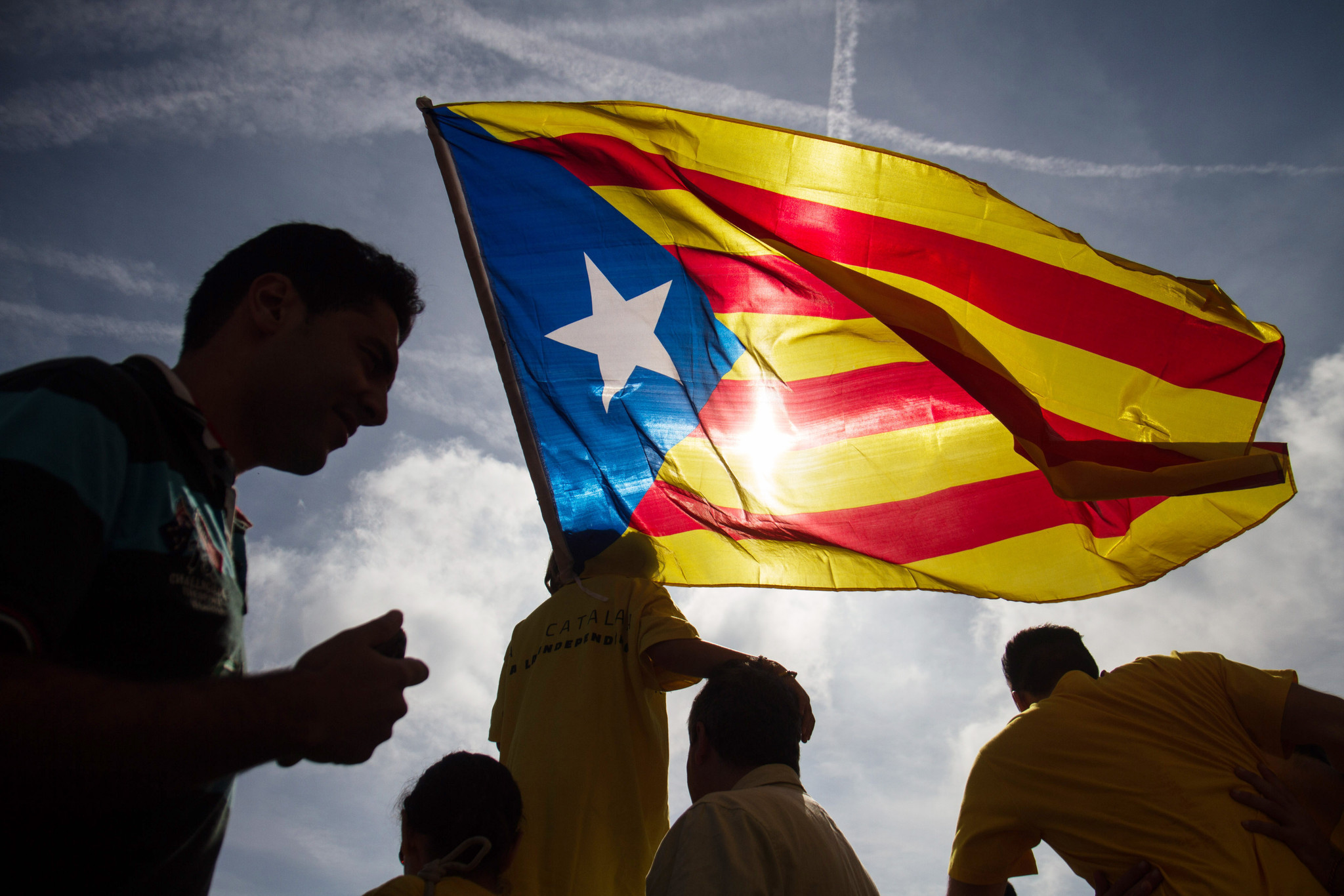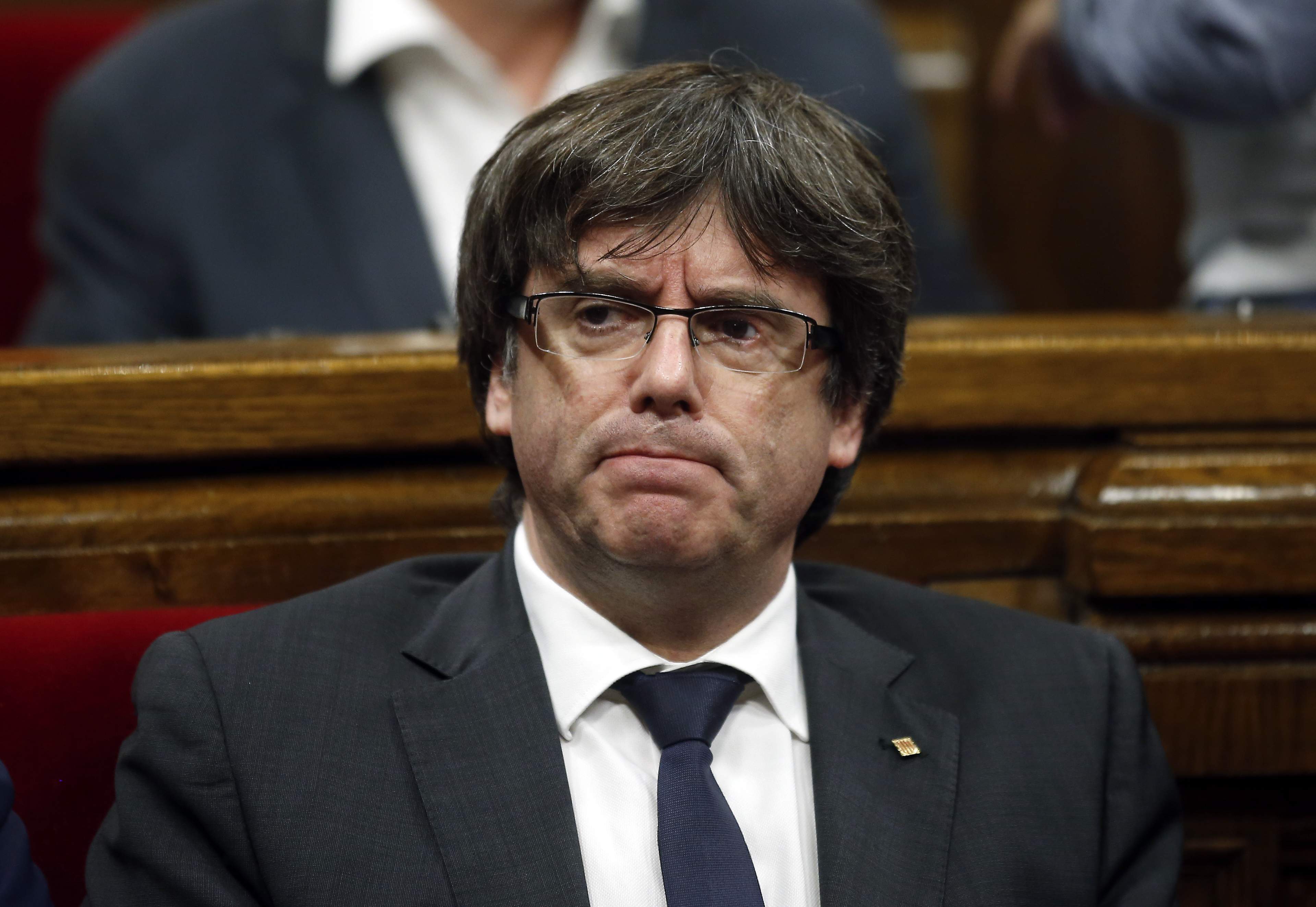Catalan Pro-Independence Parties Reclaim Majority After Regional Elections

(PC -Los Angelos Times)
In the aftermath of the Catalan Independence Referendum, the Spain Constitutional Crisis of 2017, and the dissolving of the Catalan Parliament, Spanish Prime Minister Mariano Rajoy called for a snap election to form a new parliament.
NOTE - if you are unfamiliar with Catalan politics, please check the brief description of Catalan political parties I created at the bottom of the post!
The Catalan people headed to the polls on December 21st, with 79% of registered voters turning out in the election. 70 of the 135 seats went to the 3 pro-independence parties, 34 to JuntsxCat - a center to center-right party, 32 to ERC–CatSí - a center-left to left-wing party, and 4 to CUP - a left-wing eurosceptic party. 8 seats went to CatComú–Podem - a left-wing affiliate of the Podemos political party in Spain, that does not take a stance on independence. The rest of the 57 seats went to the 3 anti-independence parties, 36 to Cs - a centrist politic party, 17 to PSC–PSOE - a center-left political party, and 4 went to PP, Mariano Rajoy's center-right party.
Here is a chart from Wikipedia that helps us visualize the seat margins!

These results give us a horrible amount of uncertainty on how the future of Catalonia. Since pro-independence parties won a majority of seats, they have the political power to form a new government and continue legislating in a pro-independence fashion. This brings up the problem that the 3 independence parties forming the government have starkly different opinions on nearly every issue not pertaining to independence, and governing despite this will be problematic at the very least.
Another roadblock in the way of the Catalan pro-independence parties is the Cs party got the most seats, and with it, a quasi-mandate. Spanish Prime Minister Rajoy has called the Cs leader in Catalonia, Inés Arrimadas, the winner of the election, as her party won the most seats and votes, and calling on her to form the next government, despite anti-independence parties not having enough seats to do so. Even Arrimadas does not currently support this move, citing she does not have enough seats.
Lastly, 5 of the newly elected pro-independence members of parliament, including former president Carles Puigdemont are currently in exile. Another 13 pro-independence elected officials are currently in jail, unable to vote, and sedition charges have been placed on 5 others. Since pro-independence parties only have a slim majority of 2 seats, and between 18 to 23 politicians unable to vote, the parties against independence may be able to de-facto form an undemocratically decided government by having more seats.

(PC - The Duran) (Depicts a sad Carles Puigdemont)
With all of the problems mentioned above, there is a great deal of uncertainty for the future of Catalonia and Catalan Independence. Please leave a comment on how you think the future will play out for Catalonia!
List of Catalan Political Parties
-Cs - A centrist political party competing all throughout Spain. Staunchly against Catalan independence. Does not support a referendum be held to determine independence.
-JuntsxCat - Political Party of former and potentially soon to be again President of Catalonia, Carles Puigdemont. Center to center-right politically. Strongly favors Catalan independence.
-ERC–CatSí - Center-left to left-wing political party in Catalonia. Strongly favors independence.
-PSC–PSOE - Socialist Party of Spain's Catalan affiliate. Center-left party that is against Catalan independence, but is in favor of having a referendum
-CatComú–Podem - Podemos affiliate in Catalonia, left-wing politically, neutral on the issue of independence and in favor of holding a referendum on independence in Catalonia
-CUP - Left wing pro-independence party in Catalonia, eurosceptic and left-wing nationalist.
-PP - Party of Spanish Prime Minister Mariano Rajoy Party. Center-right party that is totally against Catalan independence, also against referendum on independence